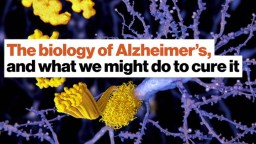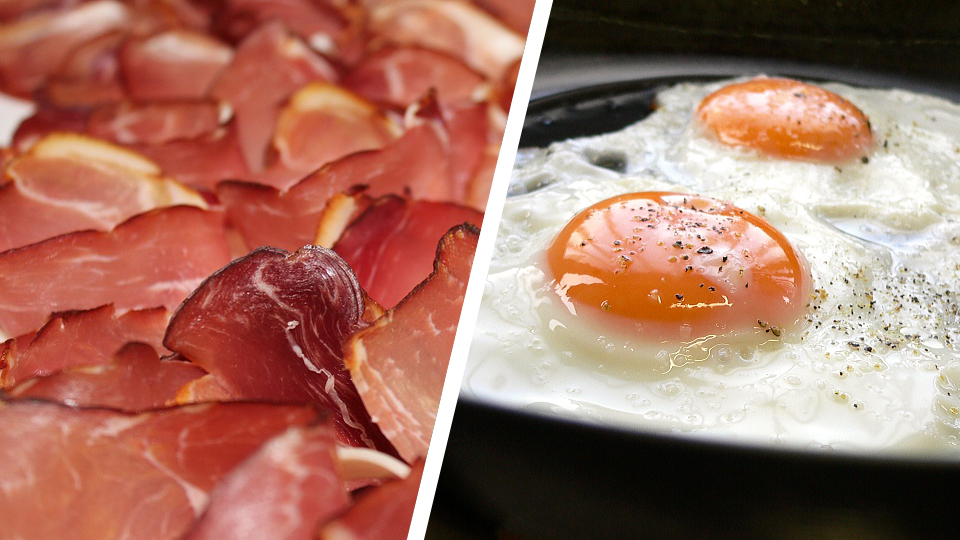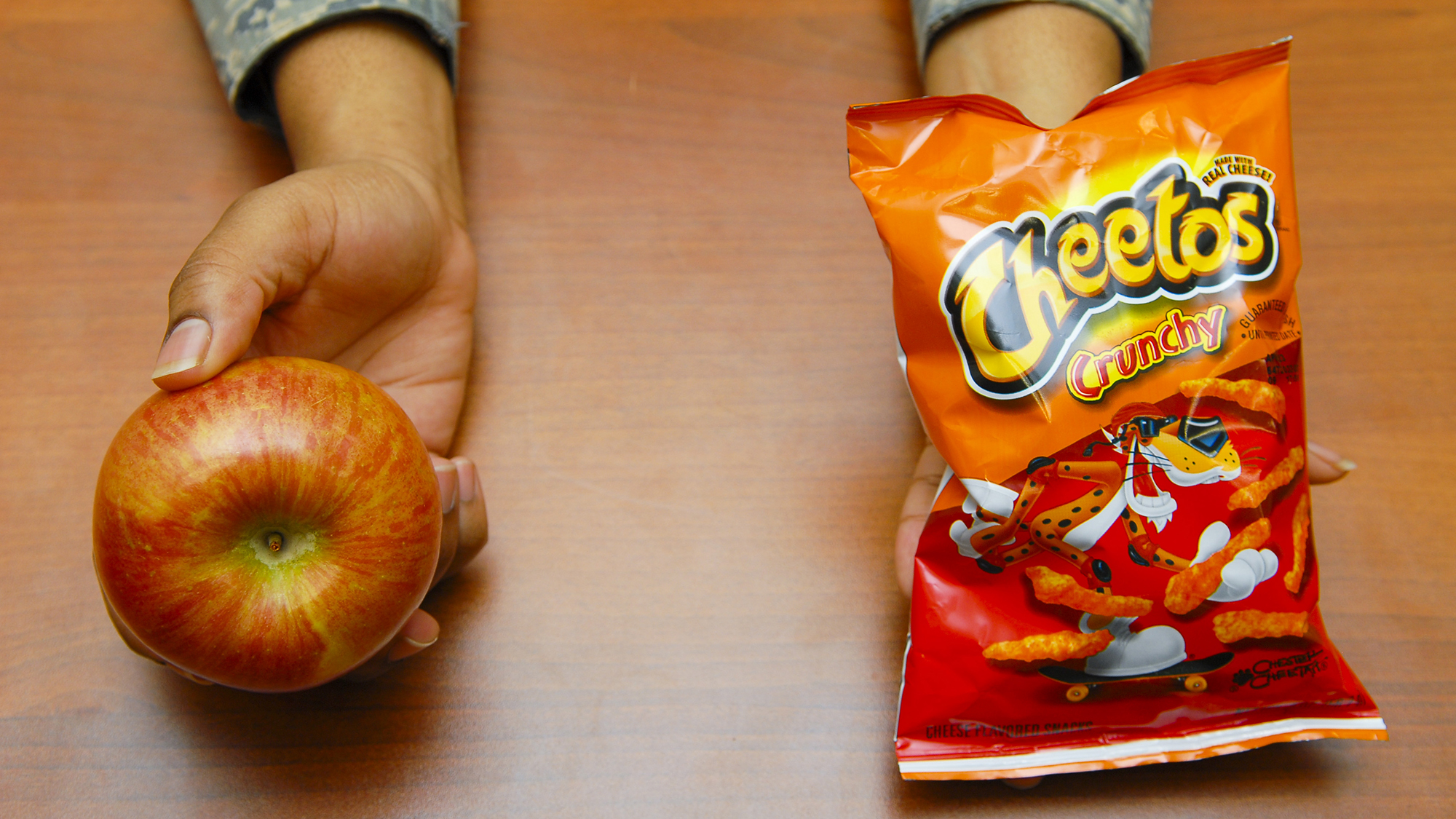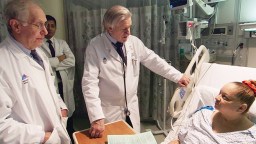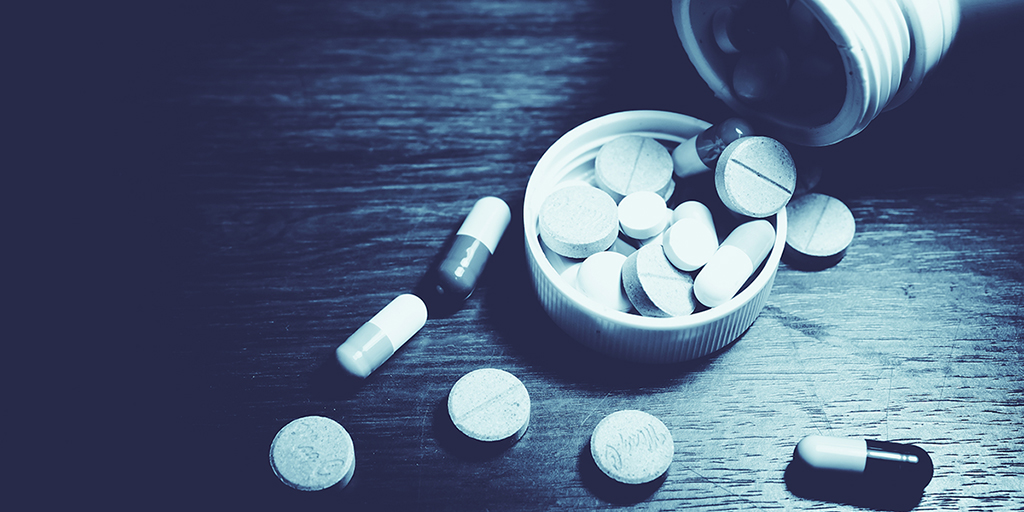health
It’s been de rigueur for at least 50 years that a daily, small dose of aspirin helps prevent heart attacks. However…
Quarantines are worth the trouble to keep the next pandemic at bay but they need to be applied intelligently.
The surprisingly simple treatment could prove promising for doctors and patients seeking to treat depression without medication.
How does Alzheimer’s disease work?
▸
7 min
—
with
Ketosis is known to work wonders in terms of short-term weight loss. But what about the diet’s effects over the long term?
Are hot dogs or hamburgers the healthier option? It’s a question that has plagued many a summer barbecue guest.
While the concept of “burning” fat is not altogether wrong, the process of losing fat probably isn’t what you imagine.
Studies have also shown that two weeks of sleep deprivation increases the consumption of excess calories, particularly from energy-dense, high-carbohydrate snacks.
It’s more than just weight gain—it’s chronic inflammation and weak immunity.
Homeopathic manufacturers take advantage of sick and vulnerable populations in criminal ways—and the FDA is, after much absence, starting to crack down.
An American research team wanted to know which combination of diet and exercise has the most beneficial results on metabolic syndrome in 10 weeks.
Documentary offers a surprisingly simple solution to improving medical care.
▸
with
Could vegetarianism actually lead to a lower quality of life?
One type of dog in particular is linked with the lowest rates of cardiovascular disease in their human pals.
In this new study, mindfulness-based intervention in schools did not move the needle on teen anxiety, depression, or body image problems.
Ramen isn’t going to be the next superfood, but it’s a little better than before.
Want to live in an energy efficient masterpiece? This startup has turned a costly overhaul into an opportunity for investors.
▸
6 min
—
with
But if the campaign isn’t successful, this scourge could return with a vengeance.
Following 14,000 people since the 1940s, these cohort studies offer insights into parenting, education, health, and the impact of poverty.
Why do first-world ailments get cured faster than global health crises? Because Big Pharma doesn’t serve sick people, it serves rich people—let’s change that.
▸
4 min
—
with
The findings of this study are stunning: in a 16-hour waking day, adults are sedentary for 12.3 hours.
Get lost in a good book. Time and again, reading has been shown to make us healthier, smarter, and more empathic.
Molecular biologists are hopeful about the results, but a long road lies ahead—so far this diet has only worked proven wonders on mice.
We’re more lonely than ever and this is horrible. Equally horrible? We can’t bare to spend time alone.
A recent study reported that middle-aged adults who attended religious services were half as likely to die prematurely. Is religion truly a miracle drug?
RIP pessimists, we barely knew you. Carnegie Mellon University’s Professor Michael Scheier explains the impact your outlook has on the world inside of you, from your cells to your psychology.
▸
7 min
—
with
19% of American soldiers returned from Vietnam addicted to heroin. 95% of them recovered without relapse. How?
The community of microorganisms that live inside of your stomach is one of the most important markers of health, physically and psychologically.
New studies look at possible age limits to the human lifespan.
Scientists are going into old science books to see if there’s anything they’ve overlooked or can improve upon.



